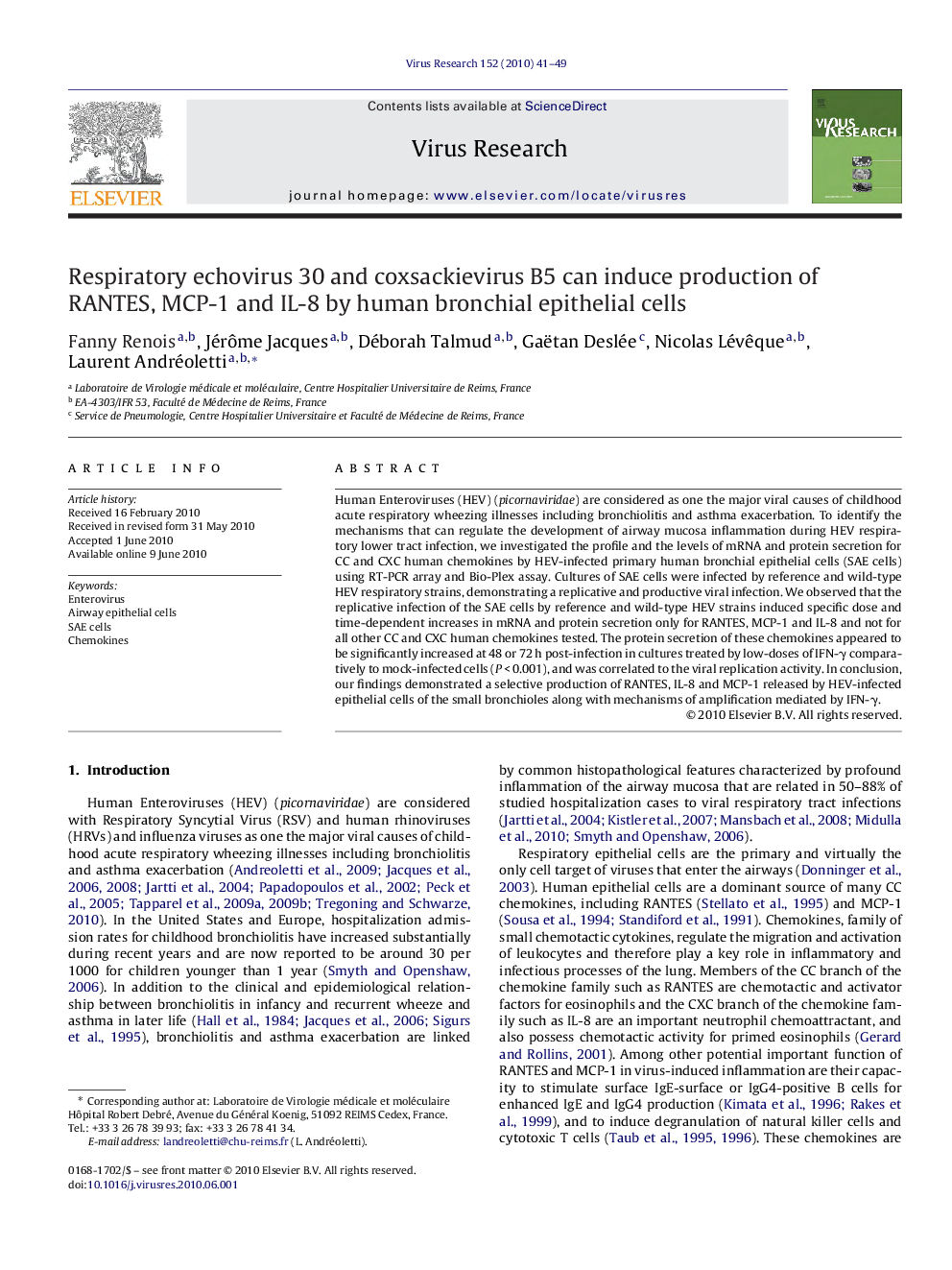| Article ID | Journal | Published Year | Pages | File Type |
|---|---|---|---|---|
| 3429474 | Virus Research | 2010 | 9 Pages |
Human Enteroviruses (HEV) (picornaviridae) are considered as one the major viral causes of childhood acute respiratory wheezing illnesses including bronchiolitis and asthma exacerbation. To identify the mechanisms that can regulate the development of airway mucosa inflammation during HEV respiratory lower tract infection, we investigated the profile and the levels of mRNA and protein secretion for CC and CXC human chemokines by HEV-infected primary human bronchial epithelial cells (SAE cells) using RT-PCR array and Bio-Plex assay. Cultures of SAE cells were infected by reference and wild-type HEV respiratory strains, demonstrating a replicative and productive viral infection. We observed that the replicative infection of the SAE cells by reference and wild-type HEV strains induced specific dose and time-dependent increases in mRNA and protein secretion only for RANTES, MCP-1 and IL-8 and not for all other CC and CXC human chemokines tested. The protein secretion of these chemokines appeared to be significantly increased at 48 or 72 h post-infection in cultures treated by low-doses of IFN-γ comparatively to mock-infected cells (P < 0.001), and was correlated to the viral replication activity. In conclusion, our findings demonstrated a selective production of RANTES, IL-8 and MCP-1 released by HEV-infected epithelial cells of the small bronchioles along with mechanisms of amplification mediated by IFN-γ.
